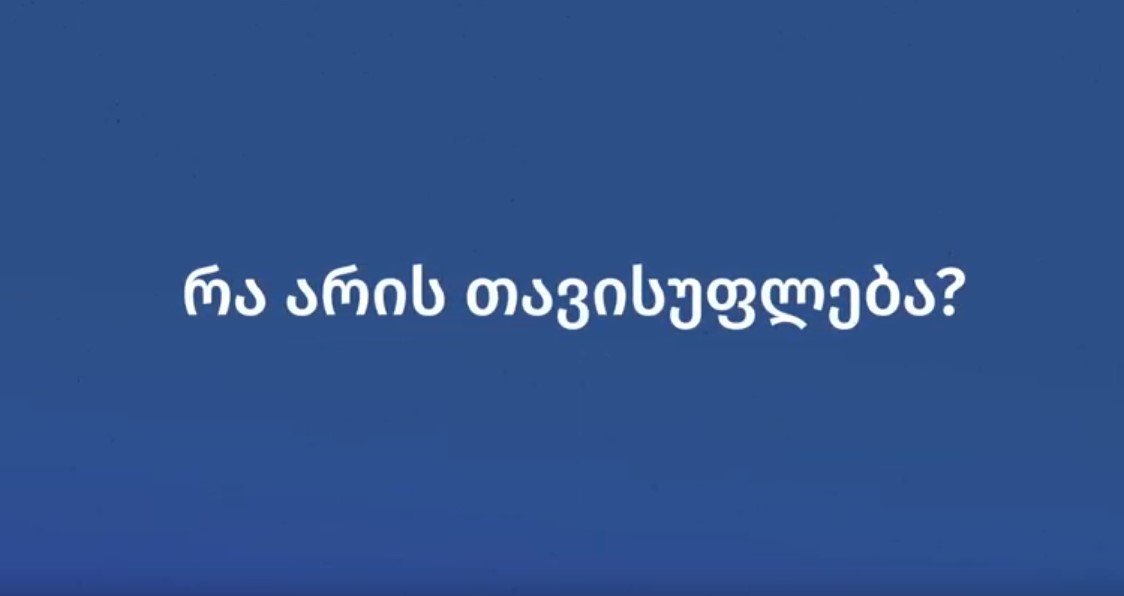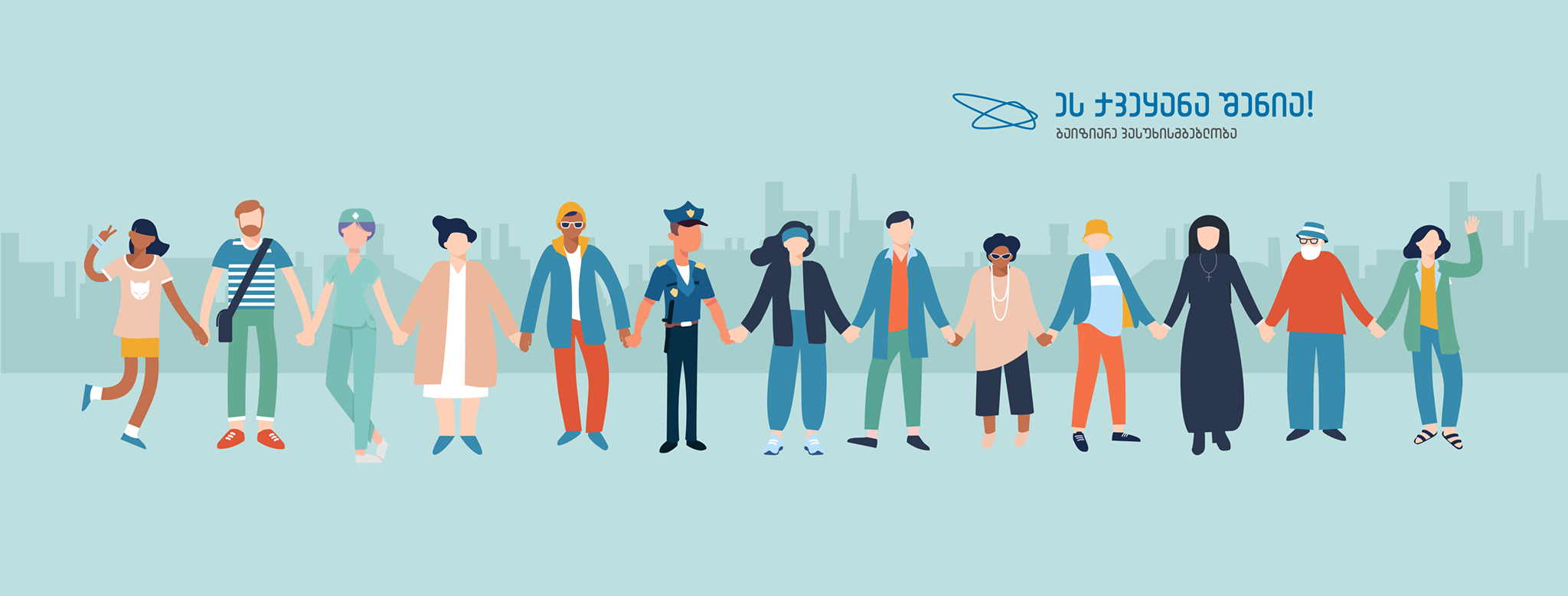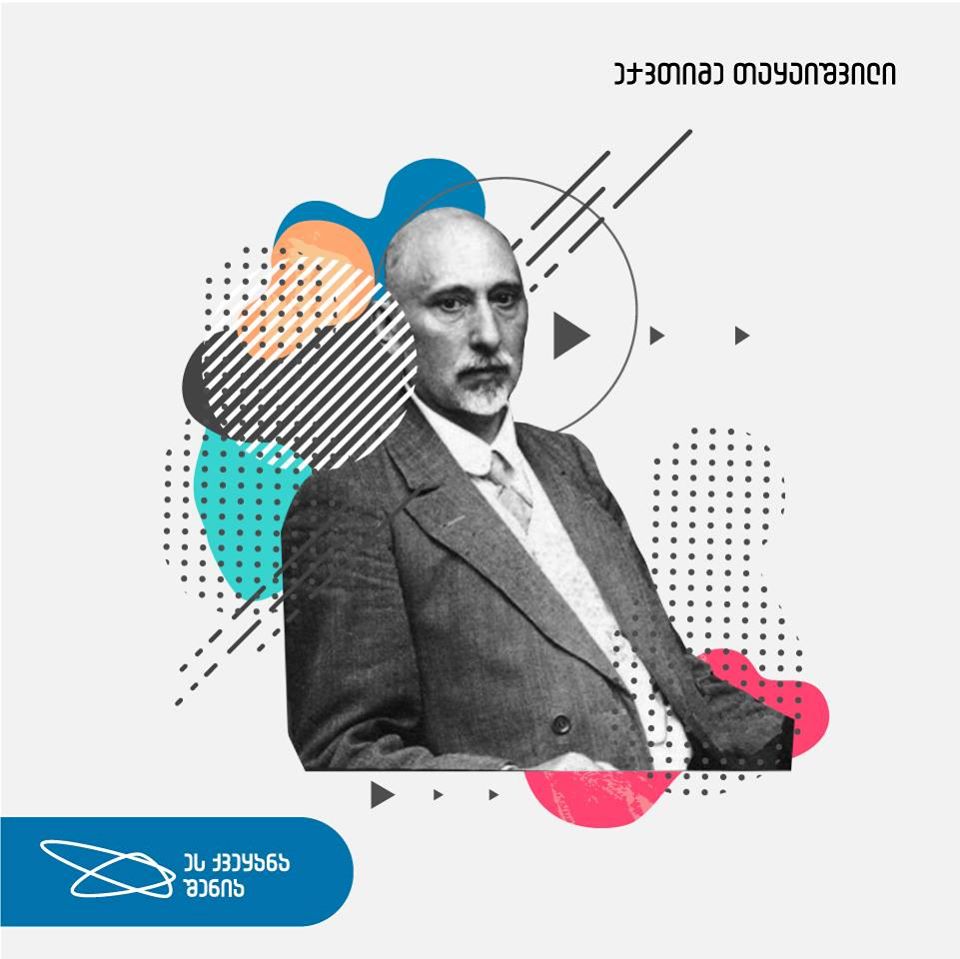Why Is Volunteerism Important?...
Popular





By Lali Shalvashvili
What is volunteerism? As a general practice, in short, this is a selfless and voluntary activity for the society's benefit.
Two years ago CSO "Mariani" has invited volunteers for recording audio books for the visually impaired. Many individuals have showed up to provide free assistance. More often now we find announcements about this or that organization inviting volunteers for the children's homes or shelters of the elderly, summer camps or offices, for taking care of animals or the environment, etc. Volunteer clubs and programs are being set up, they are joining international volunteer networks, etc.
Yet, this does not at all mean that volunteerism is well-developed in Georgia and that problems do not prevail in this respect. According to one of visualizations of CSO "Jumpstart" (17.02.14), among 135 countries, where over the last month the population had carried out volunteer activities for some other organization, Georgia is on the 68th place. The same visualization illustrates that 36 percent of population on average in the US, United Kingdom and Norway pursue volunteerism on a monthly basis. Their activities constitute approximately 4 percent of the countries' Gross Domestic Product. In case of 36-percent volunteerism in Georgia, according to visualization by "Jumpstart", volunteers would annually perform work worth of 581 344 000 GEL. Under the organization's data, 81% of the Georgian population have not served as volunteers (2013 data).
Culture of volunteerism is very actively developed in numerous western states. "Pupils, college and university students are obliged to volunteer and they get credits for it", the Director of the Civil Society Institute, Vazha Salamadze says. Moreover, without experience of volunteerism they may not be admitted in the university, have not sufficient credits, and fail to receive a diploma.
Why developing the culture of volunteerism matters? Such a development pursues several goals. "In the first place, it develops individual's skill to assist others, i.e. it makes them more humane. Secondly, although volunteerism is non-reimbursable work, youngsters learn the culture of labor. In addition, all of this is important for the economy, because this is selfless, free of charge labor", Vazha Salamadze states.
Further, in some European states including Poland, volunteers have become one of driving forces of CSOs – three-fourth of Polish organizations do not have paid staff, and a pretty similar picture is in the Czech Republic, Slovakia, and Hungary.
Usually, volunteers are mainly youngsters and pensioners. While youngsters gain knowledge, experience, helping skills and new contacts from all of this, pensioners share their experience, knowledge and skills with others. "Such mutual benefit is important for the youth as well as pensioners. It is important for the adults to maintain a social status, they not only watch TV at home, but are socially active, teach, assist...", Vazha Salamadze says. In the US, many elderly individuals become members of various organizations, and some participate in volunteer works for building houses for the homeless.
Best example of this is the "Peace Corps", which operates more than five decades in 139 countries worldwide, including in Georgia since 2001. US volunteers – youngsters or the elderly teach at schools, provide business consultations to representatives of small or medium business, etc.
What prevents the development of volunteerism institute in Georgia? Several studies have identified hindering factors, including improper informing (study by organization "Helping Hand"), lack of volunteerism tradition and social problems (study by the Young Republican Institute), and most importantly, absence of relevant legislation (study by the Civil Society Institute).
There is no legal definition of a "volunteer" and "volunteerism". Therefore, no rights and duties of a volunteer as well as benefiting organization exist. This is identified as one of the key problems in all three above-mentioned studies. Furthermore, in some cases it is very difficult to differentiate between a volunteer and an intern, because the legislation of Georgia is silent on them. Such wording is found only in international acts and conventions. For instance, the Recommendation by the United Nations General Assembly, which recommends member states to regulate the issue of volunteerism by domestic legislation. However, as noted above, it has a recommendatory nature.
"Adoption of relevant legislation will not introduce culture of volunteerism automatically, if there is no will, volunteerism will not be introduced and developed in Georgia. Yet, the law is a tool for removing obstacles that organizations working on the principles of volunteerism encounter, or that hamper the development of these institutes", the lawyer of the Civil Society Institute Archil Tsertsvadze says.
The Civil Society Institute has developed a draft bill regulating the volunteerism, which is already initiated in the legislative body. It defines not only volunteerism but the rights and duties, which a volunteer and benefiting organization should have. i.e. legal relations, and in addition proposes tax amendments, etc.
Specific provisions of a draft bill developed by the organization protect the rights of a volunteer. For example, a volunteer requires protection mechanisms for avoiding injuries during work or for further protection in case such injury occurs. "If a volunteer's health is damaged while performing work, an organization must reimburse treatment costs. But because s/he is not an organization's staff, under current tax norms such reimbursement is taxed pursuant to other regime than in case of an official staff. Same applies to costs borne for raising qualification and business trips", Archil Tsertsvadze says.
When an organization has one or two volunteers, even business trip expenses may not be such a huge burden, but there are organizations in Georgia with 50, 60 or more volunteers. Business trips of 50 volunteers require substantial finances, the lawyer of the Civil Society Institute says.
Yet, in case of such expenses, the draft bill developed by the Civil Society Institute provides for a "softer" approach. If a volunteer is ready to spend time, energy and does not request reimbursement of business trip expenses, an organization will not be obligated to reimburse, but if a volunteer makes this request, an organization will be obligated to reimburse them. If an organization lacks such desire or finances, legal relations will not occur.
Another key initiative will affect foreign volunteers present in Georgia. We all know that legal grounds for being in a foreign country are limited – this requires the right of legal presence, i.e. a visa. Authors of the draft law propose the initiative to issue a "volunteerism" visa, which by its classic meaning is not a working visa.
Experience of the European states shows that development of the volunteerism institute is directly linked with its legal regulation, as well as provision and facilitation of programs. Various methods are applied in western states to foster volunteerism. For instance, according to the "Helping Hand", in the United States of America volunteers are awarded with the President's special prize.








